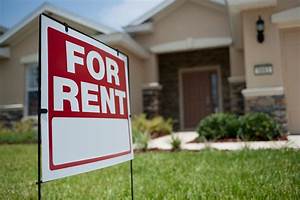
25 Jul How Can a Landlord Increase Revenue?
Price only becomes an issue when value is not demonstrated. As a landlord, if you provide value to your tenants, they will pay for it. What are some ways a landlord can add value and increase revenue?
- Provide a unit that is above the standard for the area. By doing so, your unit can command market rents and maybe even above-market rents. What are some things you can do to raise the standard? You can offer all appliances, including a refrigerator, washer, and dryer. Fresh paint and modern flooring go a long way. Many people prefer hard-surface floors over carpet. Exterior lighting, especially dusk-til-dawn lights, make people feel safe.
- Add laundry facilities if none currently exist. If an apartment building does not have a laundry facility, add washers and dryers that accept cash and credit cards. Make the laundry room bright, safe, and clean. Also, have a vending machine that sells detergent and dryer sheets.
- Provide additional parking spaces or a garage. Parking should be simple and close by. It’s no fun to carry groceries a long distance in the pouring rain. Parking spaces should not be muddy or icy. In some situations, you can charge for extra parking or a garage.
- Provide extra storage. Some apartment buildings have extra storage areas. You can even charge for additional storage. It’s better for a tenant to keep their items on-site than having to rent a third-party storage unit miles away.
- Provide Internet and/or TV service. We do that with some of our rentals. With one rental, the tenants wanted satellite TV with a full suite of Spanish-language channels. The provider wanted more than one form of ID from the tenants plus a signed long-term contract. The tenants were not able or willing to do that. To give them value, we signed the contract and charge them a little more per month than what we’re paying to the satellite TV provider. With another tenant, we pay for unlimited Internet service. We also installed a router and supplied a flat-screen TV.
- Furnish the unit. There are landlords who provide fully furnished short-term rentals. Some offer furnished mid-term rentals (more than one month and less than 12 months). Others provide furnished rentals. Some landlords provide partially furnished rentals. When you furnish the unit, you are offering convenience and can charge more as a result.
- Offer a flexible lease term. We once had a hard-to-rent unit. A prospective tenant asked for a 9-month lease, stating that every other landlord wanted a 12-month term. We agreed to 9 months, and she immediately signed the lease. After that tenant moved out, we managed to rent the unit to someone else for 12 months. You can charge a premium for a month-to-month lease or for a mid-term one.
- Charge a pet rent. We consider pets. If approved, we charge a monthly pet rent. Some landlords charge a pet deposit up front, yet we don’t do that. We also typically make our units pet-friendly by having fenced yards and hard-surface floors. There are so many pet owners who have a hard time finding a landlord who allows pets. We discovered that this is an underserved market. We receive extra rent each month in exchange for allowing certain pets. The extra money helps cover potential future damage. We have found that pet owners often stay well beyond 12 months because of the difficulty in finding another place that accepts pets.
- Pay for certain utilities or lawn maintenance and snow removal. There were times in the past that I would pay for the water/sewer bill and have the tenants pay a higher base rent. I also received a higher rent when paying for grass cutting, a spring cleaning of the grounds, and snow removal.
- Provide vending machines for food and drink. A tenant looking for a cool beverage or a late-night snack will gladly use a vending machine that you supply. You can make a profit on the food and drinks sold. Or you could ask for rent from a vending machine operator. They pay a flat monthly fee to you and make the profit on the items sold.
- Allow advertisers to rent space. Some apartment complexes have signage or even a billboard on the premises. That is an extra income opportunity for you. Some places even lease land to a cell phone tower company.
- Reduce vacancy by having short turnover times. Some landlords wait until the unit is vacant before they start marketing or before they figure out what repairs the place needs. That guarantees at least a few days of vacancy, if not more. Other landlords inspect the unit in advance and even show it to prospective new tenants before the current tenant’s move-out date. Proactive landlords can turn a unit over in as little as 24 hours. We attempt to do that, and in many instances we have had zero vacancy. We market the unit at least 10 days in advance. We collect applications up front, and then we show the place only to qualified applicants by appointment. We select the best candidate and sign a new lease. The current tenant moves out on the 31st. We have a contractor and house cleaner lined up for the 31st and/or the 1st. We hand the keys to the new tenant on the 1st.
When you offer more, you can charge more. People pay a higher price when they perceive value. They are likely to stay longer.
Tai DeSa is a graduate of The Wharton School of the University of Pennsylvania. He became a full-time real estate investor in 2004 after serving in the U.S. Navy. Tai made colossal mistakes in investing (and learned some things along the way). Tai has coached hundreds of entrepreneurs, real estate investors, and real estate agents on how to increase their income and net worth. He has helped hundreds of homeowners avoid foreclosure through successful short sales. Check out Tai’s books on Amazon.com. Tai may be available for coaching and speaking engagements on a variety of real estate topics. Send an email to tai@investandtransform.com.






No Comments